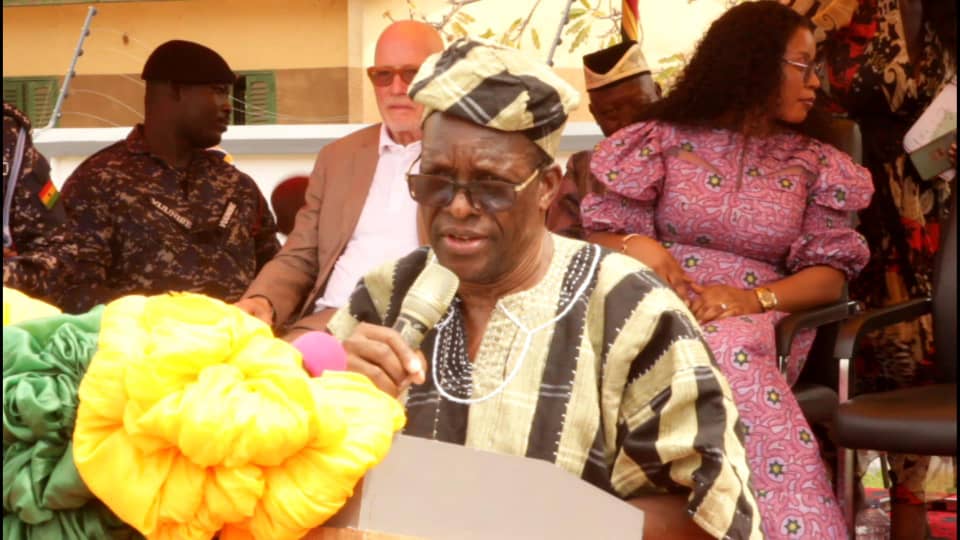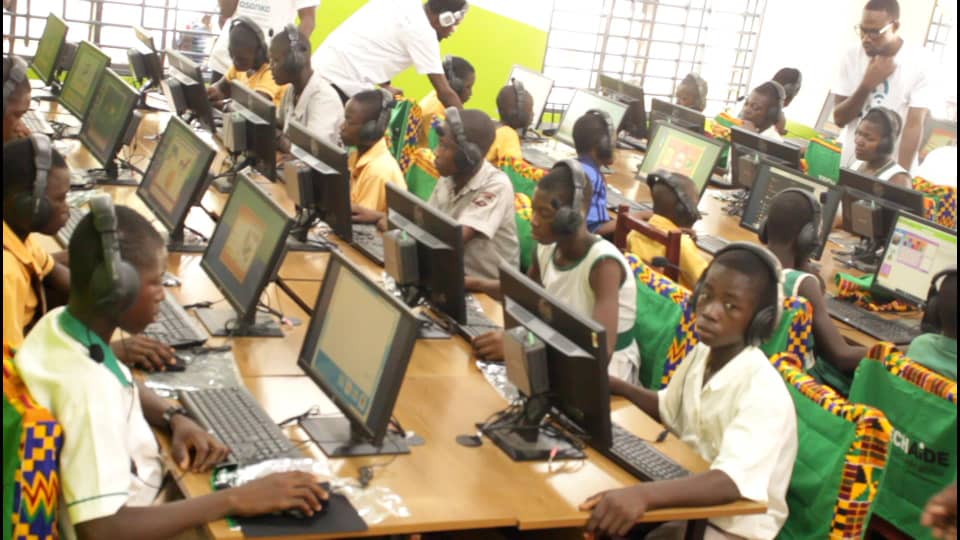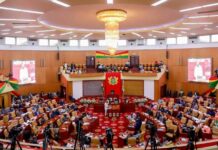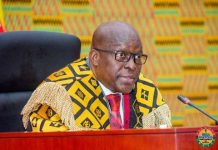The Speaker of Ghana’s Parliament, the Rt. Hon. Alban Sumana Kingsford Bagbin, has on Saturday, March 22, 2025, unveiled the Yamoransa Model (YM) Lab 14 at Kaleo in the Nadowli-Kaleo District of the Upper West Region.
The 36-seater EDULAB, which is targeted at providing a conducive learning environment to over 3,439 students, comprises 1,788 males and 1,651 females from 10 selected schools in the Kaleo Community.
The state-of-the-art facility, initiated at the Speaker’s request, was financed by Alban Bagbin as part of his commitment to advancing Science, Technology, Engineering, Arts, and Mathematics (STEAM) education in his district.
Speaking at a ceremony to officially unveil the project, Rt. Hon. Bagbin said the project is to equip selected deprived communities with state-of-the-art Information and Communication Technology (ICT) centres, educational content, and multimedia, as well as a Maker Space with robotics, AR/VR learning, and 3D Printing.
Speaker Bagbin, who is described as a promoter of the project, admonished the beneficiaries to make good use of the facility in a way to close the educational gaps in the area.
“I want you people to be better than me in future. In our time, we were not having things like these, but you are lucky,” he softly stated.
Adding that “those who know my house in Sombo will know it is not as beautiful as this, yet we have all sacrificed to bring this thing here.”
The technology and equipment with IMPLEMENTERS for the project was funded by Helping Africa Foundation (HAF) who are also the project managers.
President of the Foundation, Deborah Rose PhD., mentioned that the EDUlab project is expected to serve as a centre for modern technology and resources that boost student’s innovation, smart learning, creativity, research and leadership potential.
This initiative is in collaboration with TECHAiDE, Ghana Education Service, Nadowli-Kaleo District Assembly, and the Traditional Council.
The commissioning of this Lab brings the total number of Yamoransa Model Labs to 14 across 13 regions in Ghana, with additional labs in Gambia and Liberia.
This achievement is a testament to the programme’s commitment to advancing the Sustainable Development Goals (SDGs) of Good Health and Wellbeing, Quality Education, Gender Equality, Clean Water and Sanitation, and Affordable and Clean Energy.
By Ibrahim Wangara















